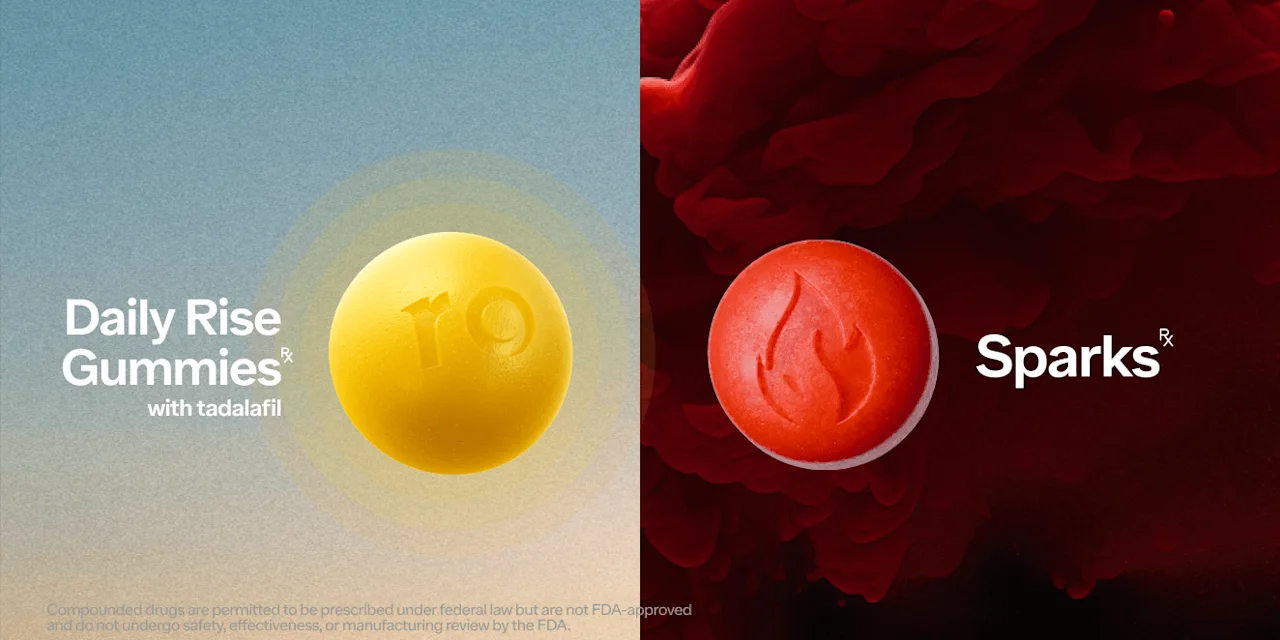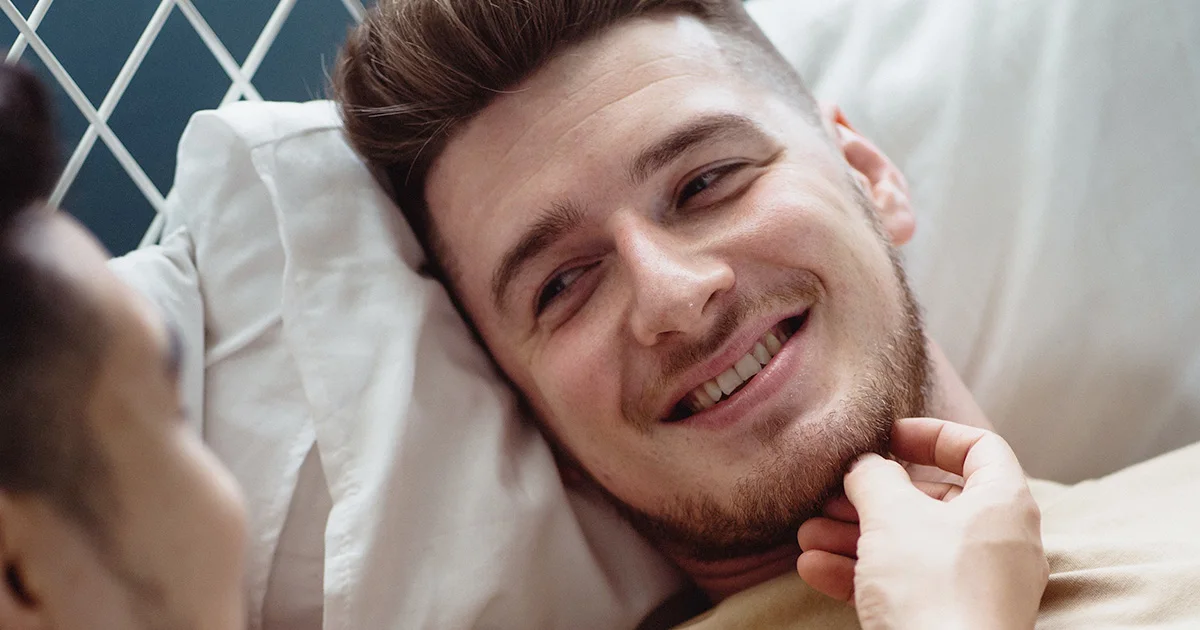Key takeaways
Several factors can affect your sexual stamina, including lifestyle habits, medications, erectile dysfunction, premature ejaculation, and your mental and physical health.
There are many things you can try to increase your sexual stamina, from eating better and exercising more to exploring new sex techniques and getting treatment for underlying conditions.
Your sexual stamina may be just fine; the important thing is that you and your partner are satisfied most of the time. If you’re having persistent issues, speak with your healthcare provider to determine your options.
Here's what we'll cover
Key takeaways
Several factors can affect your sexual stamina, including lifestyle habits, medications, erectile dysfunction, premature ejaculation, and your mental and physical health.
There are many things you can try to increase your sexual stamina, from eating better and exercising more to exploring new sex techniques and getting treatment for underlying conditions.
Your sexual stamina may be just fine; the important thing is that you and your partner are satisfied most of the time. If you’re having persistent issues, speak with your healthcare provider to determine your options.
Popular movies, television shows, and pornography tend to perpetuate ideas about “going all night,” which can create a lot of unnecessary sexual performance anxiety. And if your sexual stamina isn’t quite where you want it to be already, that can create an added layer of disappointment. It’s no surprise, then, that increasing sexual endurance is a common goal for many individuals.
The truth is, how long sex should last really only depends on what’s satisfying for the people involved. But if you’ve talked with your partner and you both agree you’d like sex to last longer or that you’d like to boost the number of times you can have sexual intercourse in one setting (another definition of sexual stamina), then it’s time to start thinking about how to increase sexual stamina.
Keep reading for some great, actionable tips you can try. You don’t need to implement all (or any) of them—the key is finding what works for you and your partner(s).
What is sexual stamina?
Sexual stamina isn’t an official medical term, but for those with penises (typically men), it’s usually thought of in terms of how long you can engage in sexual activity before losing your erection or ejaculating.
Several factors can affect your sexual stamina, including:
Premature ejaculation (PE): PE is when you ejaculate sooner than you or your partner would like. Some define it as ejaculation happening within two minutes of penetration at least 50% of the time.
Refractory period: The refractory period is how long it takes to get hard again after ejaculation. Some people may feel dissatisfied with this aspect of their sexual stamina; it’s important to know that the refractory period is different for everyone and can change with age.
Erectile dysfunction (ED): ED affects your ability to get and maintain an erection. Your stamina may be lower if you have ED and lose your erection during sex.
Underlying health conditions: Certain health conditions are associated with ED, like those affecting your heart and blood pressure. Other conditions can also affect your sexual stamina. Thyroid diseases, for example, can affect ejaculation time and libido.
Medication: Sexual dysfunction that impacts your stamina can also be associated with taking or stopping certain medications, including antidepressants and finasteride, a common treatment for male pattern baldness.
Psychological factors: Mental health conditions like depression can affect your libido and contribute to sexual dysfunction. Major life events and work stress can also cause stress-induced erectile dysfunction.
On average, men take 5–7 minutes to reach orgasm and ejaculate, but the range is wide—from less than a minute to more than half an hour. Wherever you fall on this spectrum, the most important thing is that you and your partner(s) are having satisfying sexual experiences most of the time. There’s no one-size-fits-all rule for how long you should last, and in all likelihood, you probably fall within a normal range (by definition, most people fall within the average).
With that said, if you do struggle with sexual stamina, there are many different techniques and strategies you can try. Reaching a sexual climax is a result of stimulation of the penis, typically while erect, until you reach a “tipping point,” where the sum effects of the stimulation result in the reflex action of orgasm and ejaculation. Most interventions involve changing how that stimulation is sensed or processed or occurs during sexual activity.
17 ways to increase sexual stamina
If there’s no medical condition affecting your sexual function, you may be able to last longer by managing stress, adopting healthy lifestyle habits, and putting more emphasis on foreplay. If ED or PE affects your stamina, you can consider getting medical advice from a licensed (and qualified!) healthcare provider—such as one through Ro or even your general practitioner—to address it, as both of these conditions are often treatable.
If you prefer more natural methods, there are ways to increase stamina in bed without the use of medications. Read on as we explore ways to last longer in bed naturally or with medication.
1. Try topical PE treatments
If you feel you’re ejaculating too soon, desensitizing products using benzocaine or lidocaine may be an option. These medications are local anesthetics used to numb areas of the body. Products for PE using these ingredients prevent overstimulation of the penis without completely blocking sensation, so you can last longer.
These products can work in as little as five minutes, and their effects wear off after 1–2 hours. One small study found that men who used 4% benzocaine wipes before sex saw improvements in their PE, including intercourse duration, control over ejaculation, and satisfaction with sex.
Topical PE treatments, such as Ro Swipes, do not require a prescription. There are also off-label prescription medications that may help treat PE, such as sildenafil or sertraline. Your healthcare provider can help you make a decision about whether these medications may be right for you.
2. Consider ED treatments
If you are experiencing erectile dysfunction, medications called PDE5 inhibitors (like Viagra and Cialis) are well-researched first-line treatments. These medications are highly effective for treating ED. PDE5 inhibitors are used off-label to treat PE, as well.
To simplify the way they work, these drugs help blood flow into the penis and stay in the penis (an erection), making it easier to get and maintain an erection. Both Viagra (sildenafil) and Cialis (tadalafil) can start working as soon as 30 minutes after you take the pill. Viagra can last for up to four hours, while Cialis can last a whole weekend—up to 36 hours.
If pills aren’t your thing, you’ve got other options. Ro Sparks combines the active ingredients of both drugs (sildenafil and tadalafil) in a fast-acting lozenge that kicks in after about 15 minutes and lasts for 36 hours. Ro’s Daily Rise Gummies are another option that offer a daily dose of tadalafil in a fruit-flavored gummy.
There are also other types of therapies and medical devices (such as injections and penis pumps) that can be used alone or in combination with other medicine to help treat ED.
3. Explore other medications
Certain medications can delay the time to reach a climax (even if minimally) and can be taken on-demand, meaning as needed for sexual activity, or daily. Most are prescription drugs commonly used for anxiety or depression, known as selective serotonin reuptake inhibitors (SSRIs). Serotonin is a chemical made in the body that affects mood, but it is also involved with summing up stimulation during sexual activity to result in a climax. Taking an SSRI like sertraline (Zoloft) off-label can treat PE or, used electively under the care and guidance of a healthcare provider, may be able to help improve sexual stamina.
4. Take your time
Slowing down the pace of intercourse can help increase sex time by helping you tune in and learn to recognize when you’re about to come so you can reduce stimulation to the penis (think: pull back) and have sex last longer. One method you can try is edging, which involves experiencing sexual stimulation until right before orgasm and then backing off or stopping until excitement dissipates enough to continue. You can repeat this process as needed to extend how long sex lasts.
There are different types of edging, and it may take some experimenting to find the one that works best for you.
5. Prioritize foreplay
Prioritizing foreplay may also help boost your sexual stamina, or at least how long sexual activity lasts for your partner. Taking things slowly by increasing the lead-up time (without direct stimulation of the penis) can help the experience of sex feel longer. You can also use foreplay to get your partner closer to finishing. This way, even if your sexual endurance during penetration isn’t as high as you prefer, there’s little to no gap between you and your partner finishing.
There are many different types of foreplay you can try, and it can take some experimenting before you find what works for you and your partner. Some examples include kissing, sensual massage, nibbling, or oral stimulation of erogenous zones. Some couples like incorporating dirty talk or role-playing to build anticipation, while others may find that distracting—don’t be afraid to play with different things to find what works.
6. Try the start-stop or squeeze techniques
The start-stop technique and squeeze techniques are both related to edging—ways of stopping the momentum of orgasm before you tip over the edge, so to speak.
With start-stop, as soon as you feel like you might ejaculate, you’ll stop sexual activity and go do something that gets your mind off of sex. After a period of time, you can resume sexual activity. Repeat as many times as necessary until you and your partner have had a fulfilling sexual experience.
The squeeze technique is a way of accomplishing the same goal, but when you approach the urge to ejaculate, you or your partner will physically squeeze the head of your penis until the excitement calms down. Then, you can go back to sexual activity and repeat as many times as needed.
7. Consume a healthy diet
Having low levels of certain vitamins may increase your odds of having sexual dysfunction that can negatively impact your sex life. Getting more of these vitamins through your diet may make you last longer in bed if you are experiencing deficiencies.
Vitamin deficiencies that may contribute to sexual dysfunction include:
Vitamin B9 (folate or folic acid): If you have low blood levels of this vitamin, it may affect your erectile function. One small study found a correlation between blood folate levels and erectile dysfunction; study participants with a folate deficiency had worse ED. You can find B9 in meat, poultry, and dairy, as well as plant-based sources like nuts, beans, grains, brussels sprouts, and dark green leafy vegetables.
Vitamin B12: Some studies have found that low levels of B12 may contribute to sexual performance problems. One small study found that men with gastritis with low B12 levels ejaculated much faster than those with normal levels of this vitamin. However, other studies have found no correlation between B12 levels and erectile dysfunction, so more research is needed to better understand the relationship between B12 and ED. B12 is present in animal products as well as fortified foods like cereal or nutritional yeast.
Vitamin D: Men deficient in vitamin D were more likely to have trouble with erections than men with normal levels, one study found. Vitamin D shows up in animal and plant sources, including fish, mushrooms, cheese, and eggs. You can also find it in fortified foods like milk, yogurt, cereal, and plant milks. However, even if your diet is rich in vitamin D, it can be tough to get adequate amounts of this essential vitamin through food alone, so if you are deficient, it’s a good supplement to take in pursuit of more stamina in bed.
If you want to try supplements for sexual stamina, one that might have some potential to help your sex life is L-arginine. You can also find L-arginine in animal-based proteins such as red meat and fish. This amino acid is an essential building block your body uses to make nitric oxide synthase, the enzyme that produces nitric oxide (NO). NO relaxes the inner muscles of your blood vessels, improving blood flow and, potentially, erections. L-arginine has helped mild-to-moderate ED in a few studies.
To recap, some great foods to add to your diet (for erectile function and overall health) include:
Lean proteins (e.g. lean red meats, poultry, and fish)
Dairy (e.g. milk, yogurt, cheese)
Eggs
Nuts
Beans and other legumes
Whole grains
Berries
Cruciferous vegetables (e.g. Brussels sprouts)
Leafy greens (e.g. spinach)
Fortified cereals that aren’t high in sugar
Mushrooms
8. Exercise regularly
Sex itself is a form of physical activity. It gets your heart pumping and stretches your muscles. But exercising regularly is also an essential part of encouraging a healthy sex life. One study found that men who engaged in moderate-intensity workouts had sex more frequently, higher rates of masturbation, and higher levels of sex hormones than those who did not. So, if you want to boost sexual endurance, start with boosting your physical endurance. Aerobic exercise, in particular, has been shown to make your heart adapt for increased endurance, and cardiovascular health and erectile function are linked.
A stronger heart bodes well for the bedroom, as cardiovascular health and erectile function often go hand-in-hand. The physical activity of sex is like a mini workout for your heart, and the stress relief it provides can help reduce your risk of cardiovascular disease. At the same time, ED can be an early warning sign of poor heart health.
On the flip side, a lack of physical activity is often tied to obesity. Men with obesity are 30% more likely to have ED than those with a healthy-range body mass index (BMI), and many report difficulty with sexual performance and desire.
So, do what you can to spend more time exercising. It will be good for your heart, other parts of your body, and your sexual stamina. One study found that four 40-minute aerobic workouts of moderate- to high-intensity were effective in reducing symptoms of ED. Of course, speak with a healthcare professional before you change your routine significantly to make sure the changes you are making are safe for you.
If you have obesity or overweight, a comprehensive weight loss program like the Ro Body membership can offer personalized exercise and diet plans, along with a prescription for a GLP-1 medication (if appropriate), like Wegovy or Zepbound.
9. Cut back on alcohol and quit smoking
If you want to increase stamina in bed, you may want to limit your drinking. Alcohol is no friend to sexual stamina, and chronic, heavy drinking can lead to:
Difficulty getting or maintaining an erection (the dreaded “whiskey dick”)
Difficulty orgasming
Premature ejaculation
The more you drink, the higher your chances of running into these problems in the bedroom. Heavy drinking can also impair your heart health, nitric oxide production, and blood flow to the penis, all of which can decrease your sexual stamina. Similarly, cigarette smoking also wreaks havoc on heart health and increases your risk of ED—in part because it lowers your levels of nitric oxide, a key component in getting and staying hard, not to mention the negative effects of smoking on your blood vessels.
10. Get more sleep
It’s estimated that more than a third of Americans don’t get enough sleep on a regular basis. Unfortunately, inadequate sleep could be resulting in way more than the typical grogginess. Chronic sleep deprivation (regularly getting six or fewer hours of sleep per night) is considered a risk factor for PE, ED, and fertility issues in men. What’s more, sleep disorders that disrupt your sleep, such as obstructive sleep apnea, have been linked to both low libido and erectile dysfunction.
If you find yourself waking up gasping for air in the middle of the night or your partner complains of loud snoring, it may be worth getting checked out for sleep apnea. The go-to treatment for OSA—continuous positive airway pressure, or CPAP—has been shown to relieve sleep apnea and improve sleep, which could increase your energy during the day. Furthermore, while results are inconclusive, some studies suggest using CPAP in those with sleep apnea may improve erectile and sexual function as well.
11. Strengthen your pelvic floor muscles
Various physical exercises—including Kegels, pelvic floor rehabilitation, and physical therapy—have all been shown to relieve or prevent PE in some men. In one small study of men with PE, over 80% of the participants more than doubled their sex time after undergoing a 12-week pelvic floor exercise program. Best of all, their sex time remained high at a 6-month follow-up.
To try Kegel exercises at home, tense up your muscles as if you want to stop yourself from peeing or passing gas. That’s your pelvic floor. Now, repeat that squeeze up to 15 times, holding each squeeze for 3 seconds, then release. If you are concerned about whether kegels are safe for you, you can always ask your healthcare provider or see a physical therapist who specializes in the pelvic floor.
12. Manage stress and anxiety
As if stress and anxiety didn’t make life hard enough, they can also contribute to sexual dysfunction in men, including PE and ED. Men with depression are more likely to have PE. Low self-esteem and relationship conflicts can worsen mental health, further contributing to or worsening sexual stamina. To make matters worse, if you feel like your sexual stamina isn’t up to your standards, that can lead to more stress, anxiety, depression, and low self-esteem, creating a vicious cycle.
But don’t fret! If mental health issues are interfering with your ability to enjoy life—and long-lasting sex—a therapist who specializes in issues related to sex can help. Talking through what you’re feeling can provide relief, as can mood- and health-boosting habit changes we’ve already discussed, like exercise and eating well. And if prescription medications are deemed necessary, a therapist can connect you with a psychiatrist or another licensed mental health prescriber and work with them to ensure safe and effective treatment.
13. Masturbate before sex
Masturbating before sex may help increase the length of time you spend having sex, thanks to the natural refractory period that occurs after you ejaculate. During this refractory period, it takes longer for you to get aroused and be ready to come again.
So, how long before you have sex should you masturbate, exactly? Experts recommend starting with one hour beforehand as a baseline, and then adjusting from there based on what works for you.
14. Consider trying an herbal remedy
There are many snake oil products out there, touted for improving virility or sexual endurance, but some herbal remedies have more scientific backing than others. Some more well-known herbs in this category include panax ginseng, maca root, and horny goat weed. Just be aware that studies on these and other herbs have largely been done on animals, not humans, so we don’t really know the extent of their effects in people.
Before trying any herbal remedy, be sure to clear it with your healthcare provider, especially if you take other medications or have any other medical conditions. Always remember that herbal supplements are not evaluated by the FDA. Be sure to get your supplements from a trusted source, and remember that they may have risks as well as benefits.
15. Limit the use of pornography
We mentioned earlier how the average length of time for intercourse is around 5–7 minutes, which may be shorter than you expected. If you watch a lot of porn, however, your perception of how long sex should last may be even more skewed.
Pornography use is associated with an increase in insecurities about sexual performance in men, including concerns that they don’t last long enough in bed. Several studies have also linked increased pornography consumption with a decrease in sexual satisfaction, especially in men.
16. Communicate, communicate, communicate
No matter what techniques or interventions you may decide to try, the most important thing is to communicate as openly as you can with your partner. If you feel uncomfortable about talking freely about sexual preferences and challenges with your partner, know that science backs up the importance of getting past that discomfort.
A meta-analysis from 2019 looked at a total of over 12,000 people to see how sexual communication between couples impacted their sexual function. It showed improvements in:
Desire
Arousal
Erectile function
Orgasm
Overall sexual function
They say communication is key, and the research bears that out. Here are some things you can try talking about with your partner:
Areas you like being touched (or where you really don’t like being touched)
What kind of pressure you like at different points throughout the experience
How fast you want to move
Any fetishes you might be curious about exploring
Positions you like or have wanted to try
Communicate these things to your partner, but also ask questions about their preferences to ensure an even and open partnership.
17. Consult an expert
If you’ve tried the above techniques and your sexual stamina isn’t quite where you want it to be, it could be time to contact a healthcare provider. An underlying medical condition could be impacting your sexual stamina, and treatment may offer relief.
A sex therapist can also help, especially when it comes to working with couples. Sex therapists are trained in behavioral techniques that can help lengthen the time you spend having sex. They can also help you address any communication or relationship issues that may be affecting your sex lives, including performance anxiety and unrealistic expectations.
If your libido is low, a sex therapist or your healthcare provider can help with that as well. Like sexual stamina, your libido can be affected by many factors. It’s normal for sex drive to decrease to some extent as you age. One reason for this is that testosterone levels decrease as we get older, and low libido is a common outcome. Low t, in general, can be a cause of low libido.
Certain health conditions also increase your odds of having a lowered libido, including mental health disorders and conditions that affect your levels of sex hormones. If an underlying condition is lowering your libido, getting treatment may help increase your sex drive.
Bottom line
Whatever is affecting your sex life, there are steps you can take to improve things for the better.
Sexual stamina can be affected by how strong your erections are, how quickly you ejaculate, underlying medical conditions, medications you take, or psychological factors.
On average, men reach orgasm within 5–7 minutes, but the normal range is much wider than that.
If you want to increase your sexual stamina, some things that can help include medications, lifestyle factors (like diet and exercise), increasing foreplay and communication with your partner, and trying edging techniques.
Speak with your healthcare provider if you’re having persistent problems in the bedroom. They can help figure out whether anything else might be to blame for your difficulties and determine the best course of action, considering your overall health status, current medication and supplement regimen, and medical history.
DISCLAIMER
If you have any medical questions or concerns, please talk to your healthcare provider. The articles on Health Guide are underpinned by peer-reviewed research and information drawn from medical societies and governmental agencies. However, they are not a substitute for professional medical advice, diagnosis, or treatment.
Viagra Important Safety Information: Read more about serious warnings and safety info.
Cialis Important Safety Information: Read more about serious warnings and safety info.
Sertraline Important Safety Information: Read more about serious warnings and safety info.
GLP-1 Important Safety Information: Read more about serious warnings and safety info.
Wegovy Important Safety Information: Read more about serious warnings and safety info.
Zepbound Important Safety Information: Read more about serious warnings and safety info.
Arackal, B. S. & Benegal, V. (2007). Prevalence of sexual dysfunction in male subjects with alcohol dependence. Indian Journal of Psychiatry, 49(2), 109–112. doi: 10.4103/0019-5545.33257. Retrieved from https://www.ncbi.nlm.nih.gov/pmc/articles/PMC2917074/
Attia, A., Amer, M., Hassan, M., et al (2019). Low serum folic acid can be a potential independent risk factor for erectile dysfunction: a prospective case-control study. International Urology and Nephrology, 51(2), 223–229. doi: 10.1007/s11255-018-2055-y. Retrieved from https://pubmed.ncbi.nlm.nih.gov/30547361/
Benedik, E. (2022). Sources of vitamin D for humans. International Journal for Vitamin and Nutrition Research, 92(2), 118–125. doi: 10.1024/0300-9831/a000733. Retrieved from https://pubmed.ncbi.nlm.nih.gov/34658250/
Bhat, G. S. & Shastry, A. (2019). Association between post-ejaculatory refractory time (PERT) and premature ejaculation (PE). The Journal of Sexual Medicine, 16(9), 1364–1370. doi: 10.1016/j.jsxm.2019.06.016. Retrieved from https://www.sciencedirect.com/science/article/abs/pii/S1743609519312755
Chauhan, N. S., Sharma, V., Dixit, V. K., & Thakur, M. (2014). A review on plants used for improvement of sexual performance and virility. BioMed Research International, 2014, 868062. doi: 10.1155/2014/868062. Retrieved from https://pmc.ncbi.nlm.nih.gov/articles/PMC4151601
Cho, J. W. & Duffy, J. F. (2019). Sleep, sleep disorders, and sexual dysfunction. The World Journal of Men's Health, 37(3), 261–275. doi: 10.5534/wjmh.180045. Retrieved from https://www.ncbi.nlm.nih.gov/pmc/articles/PMC6704301/
Chokka, P. R. & Hankey, J. R. (2017). Assessment and management of sexual dysfunction in the context of depression. Therapeutic Advances in Psychopharmacology, 8(1), 13–23. doi: 10.1177/2045125317720642. Retrieved from https://journals.sagepub.com/doi/full/10.1177/2045125317720642
Ciaccio, V. & Di Giacomo, D. (2022). Psychological factors related to impotence as a sexual dysfunction in young men: a literature scan for noteworthy research frameworks. Clinics and Practice, 12(4), 501–512. doi: 10.3390/clinpract12040054. Retrieved from https://www.ncbi.nlm.nih.gov/pmc/articles/PMC9326597/
Corona, G. & Maggi, M. (2022). The role of testosterone in male sexual function. Reviews in Endocrine & Metabolic Disorders, 23(6), 1159–1172. doi: 10.1007/s11154-022-09748-3. Retrieved from https://pmc.ncbi.nlm.nih.gov/articles/PMC9789013
Corona, G., Rastrelli, G., Ricca, V., et al. (2013). Risk factors associated with primary and secondary reduced libido in male patients with sexual dysfunction. The Journal of Sexual Medicine, 10(4), 1074–1089. doi: 10.1111/jsm.12043. Retrieved from https://www.sciencedirect.com/science/article/abs/pii/S1743609515303258
Crowdis, M. & Nazir, S. (2021). Premature ejaculation. StatPearls. Retrieved from https://www.ncbi.nlm.nih.gov/books/NBK546701/
Dwulit, A. D. & Rzymski, P. (2019). The potential associations of pornography use with sexual dysfunctions: an integrative literature review of observational studies. Journal of Clinical Medicine, 8(7), 914. doi: 10.3390/jcm8070914. Retrieved from https://www.ncbi.nlm.nih.gov/pmc/articles/PMC6679165/
Farag, Y., Guallar, E., Zhao, D., et al (2016). Vitamin D deficiency is independently associated with greater prevalence of erectile dysfunction: The National Health and Nutrition Examination Survey (NHANES) 2001-2004. Atherosclerosis, 252, 61–67. doi: 10.1016/j.atherosclerosis.2016.07.921. Retrieved from https://www.ncbi.nlm.nih.gov/pmc/articles/PMC5035618/
Gabrielson, A. T., Sartor, R. A., & Hellstrom, W. J. G. (2019). The impact of thyroid disease on sexual dysfunction in men and women. Sexual Medicine Reviews, 7(1), 57–70. doi: 10.1016/j.sxmr.2018.05.002. Retrieved from https://www.sciencedirect.com/science/article/abs/pii/S2050052118300593
Gerbild, H., Larsen, C. M., Graugaard, C., et al. (2018). Physical activity to improve erectile function: a systematic review of intervention studies. Sexual Medicine, 6(2), 75–89. doi: 10.1016/j.esxm.2018.02.001. Retrieved from https://www.ncbi.nlm.nih.gov/pmc/articles/PMC5960035/
Giatti, S., Diviccaro, S., Panzica, G., et al. (2018). Post-finasteride syndrome and post-ssri sexual dysfunction: Two sides of the same coin? Endocrine, 61(2), 180–193. doi: 10.1007/s12020-018-1593-5. Retrieved from https://link.springer.com/article/10.1007/s12020-018-1593-5
Gökçen, K. & Gökçen, P. (2019). Effects of vitamin B12 deficiency on ejaculation time in patients with chronic gastritis. Journal of Urological Surgery, 6(3), 244–251. doi: 10.4274/jus.galenos.2019.2591. Retrieved from https://jurolsurgery.org/articles/effects-of-vitamin-b12-deficiency-on-ejaculation-time-in-patients-with-chronic-gastritis/doi/jus.galenos.2019.2591
Hanna, M., Jaqua, E., Nguyen, V., et al. (2022). B vitamins: functions and uses in medicine. The Permanente Journal, 26(2), 89–97. doi: 10.7812/TPP/21.204. Retrieved from https://www.ncbi.nlm.nih.gov/pmc/articles/PMC9662251/
Hellsten, Y. & Nyberg, M. (2015). Cardiovascular adaptations to exercise training. Comprehensive Physiology, 6(1), 1–32. doi: 10.1002/cphy.c140080. Retrieved from https://pubmed.ncbi.nlm.nih.gov/26756625/
Institute for Quality and Efficiency in Health Care (IQWiG). (2022). Overview: Premature ejaculation. InformedHealth.org. Retrieved from https://www.ncbi.nlm.nih.gov/books/NBK547548/
Jiannine, L. M. (2018). An investigation of the relationship between physical fitness, self-concept, and sexual functioning. Journal of Education and Health Promotion, 7, 57. doi: 10.4103/jehp.jehp_157_17. Retrieved from https://www.ncbi.nlm.nih.gov/pmc/articles/PMC5963213/
Kohn, T. P., Kohn, J. R., Haney, N. M., et al. (2020). The effect of sleep on men's health. Translational Andrology and Urology, 9(Suppl 2), S178–S185. doi: 10.21037/tau.2019.11.07. Retrieved from https://www.ncbi.nlm.nih.gov/pmc/articles/PMC7108988/
Kovac, J. R., Labbate, C., Ramasamy, R., et al. (2015). Effects of cigarette smoking on erectile dysfunction. Andrologia, 47(10), 1087–1092. doi: 10.1111/and.12393. Retrieved from https://www.ncbi.nlm.nih.gov/pmc/articles/PMC4485976/
Leslie, S.W. Sooriyamoorthy, T. (2024). Erectile dysfunction. StatPearls. Retrieved on Mar. 18, 2025 from https://www.ncbi.nlm.nih.gov/books/NBK562253/
Liu, H., Waite, L. J., Shen, S., et al. (2016). Is sex good for your health? A national study on partnered sexuality and cardiovascular risk among older men and women. Journal of Health and Social Behavior, 57(3), 276–296. doi: 10.1177/0022146516661597. Retrieved from https://www.ncbi.nlm.nih.gov/pmc/articles/PMC5052677/
Mallory, A. B., Stanton, A. M., & Handy, A. B. (2019). Couples' sexual communication and dimensions of sexual function: a meta-analysis. Journal of Sex Research, 56(7), 882–898. doi: 10.1080/00224499.2019.1568375. Retrieved from https://pmc.ncbi.nlm.nih.gov/articles/PMC6699928
Mun, J. K., Choi, S. J., Kang, M. R., et al. (2018). Sleep and libido in men with obstructive sleep apnea syndrome. Sleep Medicine, 52, 158–162. doi: 10.1016/j.sleep.2018.07.016. Retrieved from https://www.sciencedirect.com/science/article/abs/pii/S1389945718305161
Nassar, G. N. & Leslie, S. W. (2022). Physiology, testosterone. StatPearls. Retrieved May 19, 2022 from https://www.ncbi.nlm.nih.gov/books/NBK526128/
National Institute of Diabetes and Digestive and Kidney Diseases. (2021). Kegel Exercises. National Institutes of Health. Retrieved from https://www.niddk.nih.gov/health-information/urologic-diseases/kegel-exercises
Ng, C. F., Lee, C. P., Ho, A. L., et al. (2011). Effect of niacin on erectile function in men suffering erectile dysfunction and dyslipidemia. The Journal of Sexual Medicine, 8(10), 2883–2893. doi: 10.1111/j.1743-6109.2011.02414.x. Retrieved from https://pubmed.ncbi.nlm.nih.gov/21810191/
Pastore, A. L., Palleschi, G., Fuschi, A., et al. (2014). Pelvic floor muscle rehabilitation for patients with lifelong premature ejaculation: a novel therapeutic approach. Therapeutic Advances in Urology, 6(3), 83–88. doi: 10.1177/1756287214523329. Retrieved from https://www.ncbi.nlm.nih.gov/pmc/articles/PMC4003840/
Piano, M. R. (2017). Alcohol's effects on the cardiovascular system. Alcohol Research: Current Reviews, 38(2), 219–241. Retrieved from https://www.ncbi.nlm.nih.gov/pmc/articles/PMC5513687/
Porst, H. & Burri, A. (2019). Novel treatment for premature ejaculation in the light of currently used therapies: A review. Sexual Medicine Reviews, 7(1), 129–140. doi: 10.1016/j.sxmr.2018.05.001. Retrieved from https://pubmed.ncbi.nlm.nih.gov/30057136/
Shabsigh, R., Kaminetsky, J., Yang, M., et al. (2017). PD69-02 double-blind, randomized controlled trial of topical 4% benzocaine wipes for management of premature ejaculation: Interim analysis. Journal of Urology, 197(4S), e1344–e1345. doi: 10.1016/j.juro.2017.02.3143. Retrieved from https://www.auajournals.org/doi/10.1016/j.juro.2017.02.3143
Sun, C., Bridges, A., Johnson, J. A., et al. (2016). Pornography and the male sexual script: an analysis of consumption and sexual relations. Archives of Sexual Behavior, 45(4), 983–994. doi: 10.1007/s10508-014-0391-2. Retrieved from https://www.researchgate.net/publication/269173515_Pornography_and_the_Male_Sexual_Script_An_Analysis_of_Consumption_and_Sexual_Relations
von Büren, M., Rodler, S., Wiesenhütter, I., et al. (2022). Digital real-world data suggest patient preference for tadalafil over sildenafil in patients with erectile dysfunction. European Urology Focus, 8(3), 794–802. doi: 10.1016/j.euf.2021.04.019. Retrieved from https://www.eu-focus.europeanurology.com/article/S2405-4569(21)00125-5/fulltext
Waldinger, M. D., Quinn, P., Dilleen, M., Mundayat, R., Schweitzer, D. H., & Boolell, M. (2005). A multinational population survey of intravaginal ejaculation latency time. The Journal of Sexual Medicine, 2(4), 492–497. doi: 10.1111/j.1743-6109.2005.00070.x. Retrieved from https://pubmed.ncbi.nlm.nih.gov/16422843/
Xia, Y., Li, J., Shan, G., et al. (2016). Relationship between premature ejaculation and depression: A PRISMA-compliant systematic review and meta-analysis. Medicine, 95(35), e4620. doi: 10.1097/MD.0000000000004620. Retrieved from https://www.ncbi.nlm.nih.gov/pmc/articles/PMC5008563/













